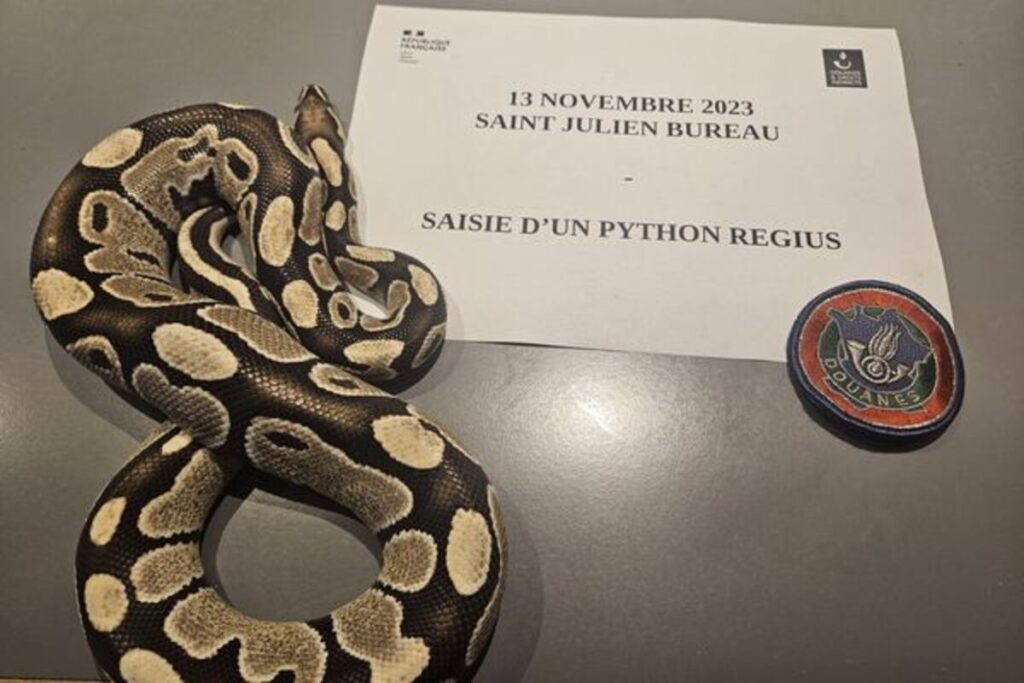On a seemingly ordinary day at the Franco-Swiss border in Haute-Savoie, customs officers were in for a chilling surprise that made their skin crawl as they inspected the trunk of a motorist’s car. What they discovered was far from typical luggage—it was a wild animal, the kind that could send shivers down anyone’s spine.
A Routine Check Reveals a Shocking Cargo
It was Monday, November 13th, when the customs team decided to pull over a motorist who appeared to be in the midst of moving. The man was asked to open his car trunk for a routine check, a standard procedure at border crossings intended to prevent smuggling. However, nothing could have prepared the officers for what they were about to uncover.
Inside the trunk, nestled among various moving boxes, was a crate containing a royal python measuring one meter in length.
A Royal Python Among the Possessions

The python, which the motorist claimed to have owned for seven years, wasn’t traveling alone; it shared its cramped quarters with three other reptiles. According to the driver, he had acquired these creatures at a reptile exchange and via Leboncoin, a popular local classifieds website.
However, the royal python is listed under the Washington Convention, an international treaty designed to ensure that the trade in wild animals and plants does not threaten their survival. As such, ownership of such species requires a specific permit, which, in this case, the motorist did not possess.
Legal Repercussions and Wildlife Protection
The discovery led to immediate legal actions against the motorist. He was charged with the offense of exporting goods without a declaration, a serious crime given the protected status of the python. The snake itself was taken into custody and handed over to a specialized facility equipped to care for such animals.
This incident serves as a stark reminder of the responsibilities and legal obligations that come with owning exotic pets. It also highlights the vigilance of customs officers who are often the first line of defense in protecting endangered species and ensuring that international wildlife trade regulations are enforced.






